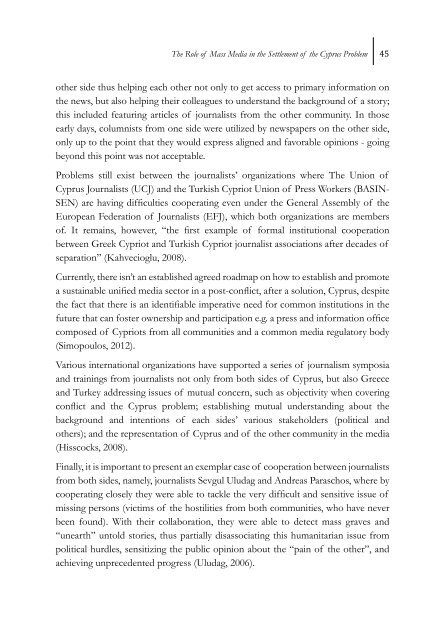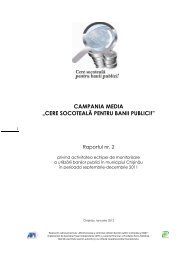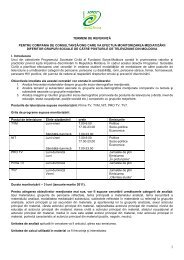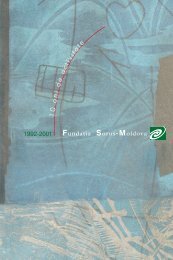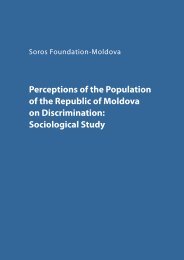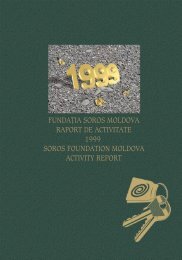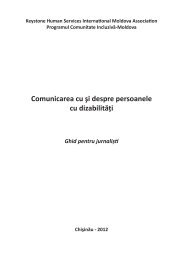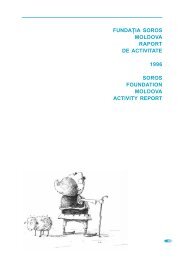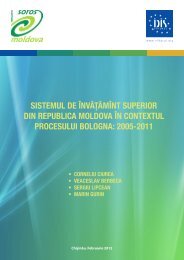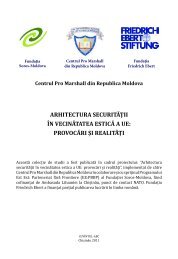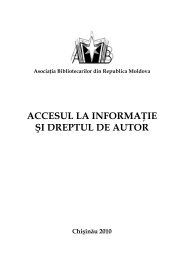Managing Intractable Conflicts: Lessons from Moldova and Cyprus
Managing Intractable Conflicts: Lessons from Moldova and Cyprus
Managing Intractable Conflicts: Lessons from Moldova and Cyprus
You also want an ePaper? Increase the reach of your titles
YUMPU automatically turns print PDFs into web optimized ePapers that Google loves.
The Role of Mass Media in the Settlement of the <strong>Cyprus</strong> Problem<br />
45<br />
other side thus helping each other not only to get access to primary information on<br />
the news, but also helping their colleagues to underst<strong>and</strong> the background of a story;<br />
this included featuring articles of journalists <strong>from</strong> the other community. In those<br />
early days, columnists <strong>from</strong> one side were utilized by newspapers on the other side,<br />
only up to the point that they would express aligned <strong>and</strong> favorable opinions - going<br />
beyond this point was not acceptable.<br />
Problems still exist between the journalists’ organizations where The Union of<br />
<strong>Cyprus</strong> Journalists (UCJ) <strong>and</strong> the Turkish Cypriot Union of Press Workers (BASIN-<br />
SEN) are having difficulties cooperating even under the General Assembly of the<br />
European Federation of Journalists (EFJ), which both organizations are members<br />
of. It remains, however, “the first example of formal institutional cooperation<br />
between Greek Cypriot <strong>and</strong> Turkish Cypriot journalist associations after decades of<br />
separation” (Kahvecioglu, 2008).<br />
Currently, there isn’t an established agreed roadmap on how to establish <strong>and</strong> promote<br />
a sustainable unified media sector in a post-conflict, after a solution, <strong>Cyprus</strong>, despite<br />
the fact that there is an identifiable imperative need for common institutions in the<br />
future that can foster ownership <strong>and</strong> participation e.g. a press <strong>and</strong> information office<br />
composed of Cypriots <strong>from</strong> all communities <strong>and</strong> a common media regulatory body<br />
(Simopoulos, 2012).<br />
Various international organizations have supported a series of journalism symposia<br />
<strong>and</strong> trainings <strong>from</strong> journalists not only <strong>from</strong> both sides of <strong>Cyprus</strong>, but also Greece<br />
<strong>and</strong> Turkey addressing issues of mutual concern, such as objectivity when covering<br />
conflict <strong>and</strong> the <strong>Cyprus</strong> problem; establishing mutual underst<strong>and</strong>ing about the<br />
background <strong>and</strong> intentions of each sides’ various stakeholders (political <strong>and</strong><br />
others); <strong>and</strong> the representation of <strong>Cyprus</strong> <strong>and</strong> of the other community in the media<br />
(Hisscocks, 2008).<br />
Finally, it is important to present an exemplar case of cooperation between journalists<br />
<strong>from</strong> both sides, namely, journalists Sevgul Uludag <strong>and</strong> Andreas Paraschos, where by<br />
cooperating closely they were able to tackle the very difficult <strong>and</strong> sensitive issue of<br />
missing persons (victims of the hostilities <strong>from</strong> both communities, who have never<br />
been found). With their collaboration, they were able to detect mass graves <strong>and</strong><br />
“unearth” untold stories, thus partially disassociating this humanitarian issue <strong>from</strong><br />
political hurdles, sensitizing the public opinion about the “pain of the other”, <strong>and</strong><br />
achieving unprecedented progress (Uludag, 2006).


